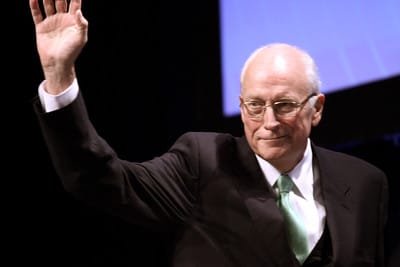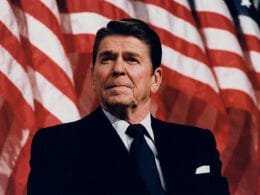In My Time
Published in 2011, Dick Cheney’s memoir, ‘In My Time’, serves as both a personal narrative and a political examination of his extensive career in American politics. The book chronicles Cheney’s life, from his formative years in Wyoming to his influential roles in various administrations, including his time as the Vice President under George W. Bush. Cheney’s motivations for writing this memoir stem from a desire to provide an insider’s perspective on key political events and decisions, shedding light on the complexities surrounding his tenure and controversies that marked it.
Throughout the memoir, Cheney recounts significant moments in American history, including the events surrounding September 11, 2001, and the subsequent War on Terror. This work is particularly poignant since it addresses his involvement in crucial decisions regarding national security and military strategy. By reflecting on these experiences, Cheney aims to clarify his position and respond to criticisms that he faced from political adversaries and the public. Moreover, ‘In My Time’ is significant as it encompasses Cheney’s reflections on the political landscape of America and the evolution of its policies over the decades.
The memoir also delves into Cheney’s personal life, revealing insights into his family background, values, and work ethic. This combination of personal anecdotes and political analysis offers readers a multifaceted view of Cheney as both a private individual and a public figure. As one of the most polarizing figures in contemporary American politics, understanding Cheney’s journey through his memoir is essential for grasping the intricacies of modern governance and the ongoing debates regarding leadership, ethics, and policy-making.
Background and Early Life
Richard Bruce Cheney, popularly known as Dick Cheney, was born on January 30, 1941, in Lincoln, Nebraska. Growing up in a modest household, Cheney was the second of three children in his family. His formative years were spent in a working-class environment, shaping his understanding of the complexities surrounding poverty and economic struggle. This early experience had a significant impact on his future political views, instilling in him a sense of responsibility towards public service and governance.
Cheney’s family relocated to Casper, Wyoming, during his childhood, where he would later attend high school. It was during these years that his interests began to crystallize. A significant turning point came when he started to engage with the local political scene, gaining exposure to the mechanics of government and leadership. His participation in debate clubs fostered his analytical thinking and oratory skills, which would later serve him well throughout his career in politics.
After completing high school, Cheney pursued his education at the University of Wyoming, where he initially struggled to find his footing. However, he ultimately earned a bachelor’s degree in political science in 1965. His academic journey was marked by pivotal experiences, including brief stints in leadership roles within student government, where he began to cultivate his political aspirations. Following his undergraduate education, Cheney accepted a notable opportunity to work in the U.S. Capitol as an intern. This experience provided him with invaluable insights into the intricacies of politics and lawmaking.
Cheney’s early life, characterized by a blend of personal hardship, academic pursuit, and budding political engagement, laid the foundation for his future endeavors in public service. These formative experiences heavily influenced his later decisions, shaping his approach to governance and policy-making. As he progressed into a professional career in politics, the lessons learned during his early years would echo throughout his tenure in various governmental roles.
Political Rise and Key Career Milestones
Dick Cheney’s journey through the political landscape of the United States is marked by a series of significant milestones that not only shaped his career but also had lasting impacts on national policy. His ascent began in earnest in the late 1960s, as he worked for the Nixon administration in various capacities, which laid the groundwork for future opportunities. In 1975, Cheney was appointed as the White House Chief of Staff under President Gerald Ford, where he played a pivotal role in managing domestic and foreign affairs during a challenging period in U.S. politics.
Following his time in that position, Cheney served as a congressman for Wyoming from 1979 to 1989. His tenure in the House of Representatives was marked by a focus on defense and foreign affairs, contributing significantly to legislation that would later influence American military strategy. His expertise in these areas earned him a reputation as a formidable figure within the Republican Party, which eventually led to his appointment as Secretary of Defense under President George H.W. Bush from 1989 to 1993. This role was particularly noteworthy during the Gulf War, where Cheney’s decisions were instrumental in the formation of U.S. military strategy that would decisively engage Iraqi forces.
Cheney’s political career reached its zenith when he was selected as Vice President during George W. Bush’s administration from 2001 to 2009. His influence in this role was considerable, particularly post-September 11, as he advocated for policies that would redefine national security and counterterrorism strategies. Notable initiatives included the establishment of the Department of Homeland Security and the promotion of the controversial Patriot Act. These decisions not only reflect Cheney’s political acumen but also highlight his ability to navigate complex legislative environments, solidifying his place in American political history.
The Vice Presidency and Major Events
During his tenure as Vice President under President George W. Bush from 2001 to 2009, Dick Cheney played a critical role in shaping U.S. national security policy during one of the most tumultuous periods in modern American history. His involvement was particularly pronounced during significant events such as the September 11 attacks and the subsequent initiation of the Iraq War. Cheney’s approach to national security was marked by a strong emphasis on decisive action and the importance of preemptive strategies.
In the immediate aftermath of the September 11 attacks in 2001, Cheney was pivotal in the administration’s response. He was instrumental in advocating for military operations in Afghanistan to dismantle al-Qaeda and overthrow the Taliban regime that harbored them. This period saw the implementation of aggressive counterterrorism measures, which included the establishment of the Department of Homeland Security and various enhancements to national security protocols. Cheney often emphasized the need for a robust framework to combat global terrorism, drawing from both military and intelligence perspectives.
Transitioning from Afghanistan, Cheney was a major proponent of the controversial decision to invade Iraq in 2003. His arguments centered around the assertion that Saddam Hussein possessed weapons of mass destruction and posed an imminent threat to the United States and its allies. This decision ultimately led to a long and complicated conflict that significantly impacted U.S. foreign policy and military strategy. Cheney maintained that the Iraq War was essential for regional stability and as a preventive measure against future threats.
Throughout his vice presidency, Cheney’s influence extended beyond these specific events, as he consistently advocated for a robust defense posture and a comprehensive approach to national security. His legacy remains a point of contention among historians, reflecting the complexities and consequences of the decisions made during his time in office.
Controversies and Criticisms
Dick Cheney’s vice presidency, spanning from 2001 to 2009, has been a focal point of numerous controversies and criticisms, shaping both public opinion and his legacy. One of the primary criticisms revolves around his foreign policy decisions, particularly in the aftermath of the September 11 attacks. Cheney played a pivotal role in pushing for the invasion of Iraq in 2003, arguing that it was essential to combat terrorism and eliminate weapons of mass destruction. However, the subsequent failure to find such weapons led to widespread condemnation and allegations that Cheney, along with the Bush administration, misled Congress and the public, raising questions of accountability and transparency.
Cheney’s perceived secrecy in governance has also drawn significant scrutiny. Critics argue that his approach to executive power often undermined democratic processes, with decisions made behind closed doors and limited public disclosure. This lack of openness fostered distrust and contributed to a broader narrative of an administration that marginalized dissenting voices. Furthermore, his role in establishing the legal and operational frameworks for enhanced interrogation techniques has been particularly contentious. These practices have been widely condemned as torture, leading to ethical debates and international backlash, tarnishing the United States’ image on the global stage.
Although Cheney defended these measures as necessary for national security, many critics argue that such policies have long-lasting repercussions, both morally and strategically. These controversies have ultimately left a complicated legacy for Cheney, as public perception continues to evolve. Discussions surrounding his actions and decisions remain polarizing, illustrating the profound impact his policies had on American society and international relations. Consequently, Cheney’s tenure is often cited as a case study in the intricate balance between security and ethical governance, highlighting the challenges faced by leaders in times of crisis.
Personal Reflections and Insights
In his memoir, “In My Time,” Dick Cheney provides a nuanced examination of his life and the pivotal moments that have shaped his views on leadership and governance. Throughout the pages, Cheney reflects on the myriad decisions he made during critical periods such as his tenure as Secretary of Defense and as Vice President of the United States. These reflections reveal his belief in the weighty responsibility that accompanies positions of power and the difficult choices that leaders must often navigate.
Central to Cheney’s narrative is his understanding of moral complexity in political life. He discusses the importance of balancing ethical considerations with pragmatic decision-making in order to fulfill one’s duties effectively. Each decision taken, according to Cheney, requires the leader to assess not only the immediate impacts but also the long-term implications for the nation and its citizens. This profound understanding is indicative of the challenges faced by those in power and emphasizes the necessity of integrity in leadership roles.
Cheney’s insights into leadership are deeply informed by his personal experiences, not only in terms of policy decisions but also regarding interpersonal dynamics within the political sphere. He acknowledges that successful leadership is often not just about making decisions but also about influencing others and fostering cooperation among diverse groups. This theme resonates throughout his career, as he recounts instances where decisions were made collaboratively, reflecting the values of teamwork and mutual respect.
Moreover, Cheney reflects on the lessons learned, both from successes and setbacks. His journey illustrates the complex interplay between conviction and flexibility, particularly in times of crisis. By sharing these personal insights, he offers readers a candid look at the intricate realities of a life dedicated to public service, shedding light on the personal philosophies that guided him through a turbulent political landscape.
Impact and Legacy
Dick Cheney’s tenure as the Vice President from 2001 to 2009 has had a profound and lasting impact on American politics and policymaking. His leadership style, characterized by a decisive and often authoritative approach, has influenced a generation of political leaders and continues to serve as a reference point for contemporary governance. Cheney’s advocacy for a strong executive branch and expansive presidential powers has sparked extensive debate regarding the balance between national security and civil liberties, and these discussions resonate in today’s political climate.
Through his role in shaping key policies, particularly in the area of foreign relations, Cheney has left an indelible mark on U.S. military strategy and national security protocols. His promotion of the War on Terror and the controversial use of enhanced interrogation techniques have not only defined his legacy but have also prompted ongoing legal and ethical debates. For many, these decisions exemplify a substantial shift in American foreign policy, emphasizing a more aggressive stance that future administrations would either build upon or seek to rectify.
The public perception of Cheney is varied; he is often portrayed as a polarizing figure in American politics. Supporters praise his decisive actions during a time of national crisis, while critics argue that his policies fostered an environment of fear and infringe upon individual rights. This dichotomy influences how new political figures approach similar issues, with some seeking to emulate Cheney’s assertive style, while others may strive for a more measured and conciliatory approach.
Ultimately, the implications of Dick Cheney’s actions are still being assessed, as future leaders grapple with the challenges of security, diplomacy, and governance in an increasingly complex global landscape. His impact on the political arena remains a relevant topic for engaging discussions on the roles of power, responsibility, and accountability in leadership.
Critical Reception of the Memoir
‘In My Time’, Dick Cheney’s personal and political memoir, has elicited a spectrum of responses from critics, historians, and political analysts alike. Upon its release, the memoir garnered considerable attention due to Cheney’s prominent role in American politics as the Vice President under George W. Bush. Many reviews underscored the memoir’s dual role as a personal reflection and a defense of decisions made during tumultuous times, particularly in the context of the War on Terror.
Historians have approached the memoir with a critical lens, often focusing on the accuracy and narrative choices employed by Cheney. Some have appreciated his candid recounting of behind-the-scenes events, while others have questioned the objectivity of his reflections. Critics have pointed out that Cheney’s assertions often appear self-justifying, which may skew the historical interpretation of his actions. Political analysts have similarly noted that his storytelling tends to emphasize the rationale behind controversial policies, such as enhanced interrogation techniques and the justification for the invasion of Iraq. This has led to a heated debate regarding the ethical implications of his decisions and the broader impact of his memoir on public memory.
Media reviews have mirrored this diverse critique, with some outlets praising the memoir’s engaging writing style and its ability to provoke thought. However, many critiques have highlighted the selective nature of Cheney’s narrative, which seemingly omits or glosses over missteps and ethical quandaries faced during his time in office. The implications of these storytelling choices suggest a deliberate effort to reshape the historical narrative surrounding his tenure. Ultimately, ‘In My Time’ serves not only as a personal recollection but also as a complex artifact that reveals much about the interplay between personal legacy and historical interpretation in the realm of political memoirs.
Conclusion: Lessons from ‘In My Time’
‘In My Time’ offers a multifaceted perspective on the life and career of Dick Cheney, inviting readers to glean valuable insights about the intersection of personal narratives and politics. One of the key takeaways from Cheney’s memoir is the importance of understanding the motivations behind a leader’s decisions. Cheney’s reflections reveal how personal experiences, values, and relationships shape an individual’s political journey. This highlights that the decisions made by political figures are not merely results of policy discussions, but rather are influenced heavily by their life stories and contexts.
Moreover, Cheney’s account underscores the complexities associated with political leadership. His perspective brings attention to the fact that leaders often face morally ambiguous situations and must navigate challenging dilemmas that can lead to significant consequences. This element of his memoir encourages readers to consider that judgments on political actions should not be done in isolation but must be understood within the broader framework of their factors, including political pressure, societal challenges, and the historical moment at hand.
Finally, as readers reflect on Cheney’s experiences, they are reminded of the lasting impact of decisions made in political office. History often reduces complex individuals and their legacies to simple narratives, which can overlook the nuances of their actions. Cheney’s memoir serves as a reminder that a comprehensive understanding of political figures requires a deeper examination of both their personal stories and the historical contexts they operated within. Thus, ‘In My Time’ encourages an approach to historical narratives that appreciates the intricate layers of personal and political dynamics.




